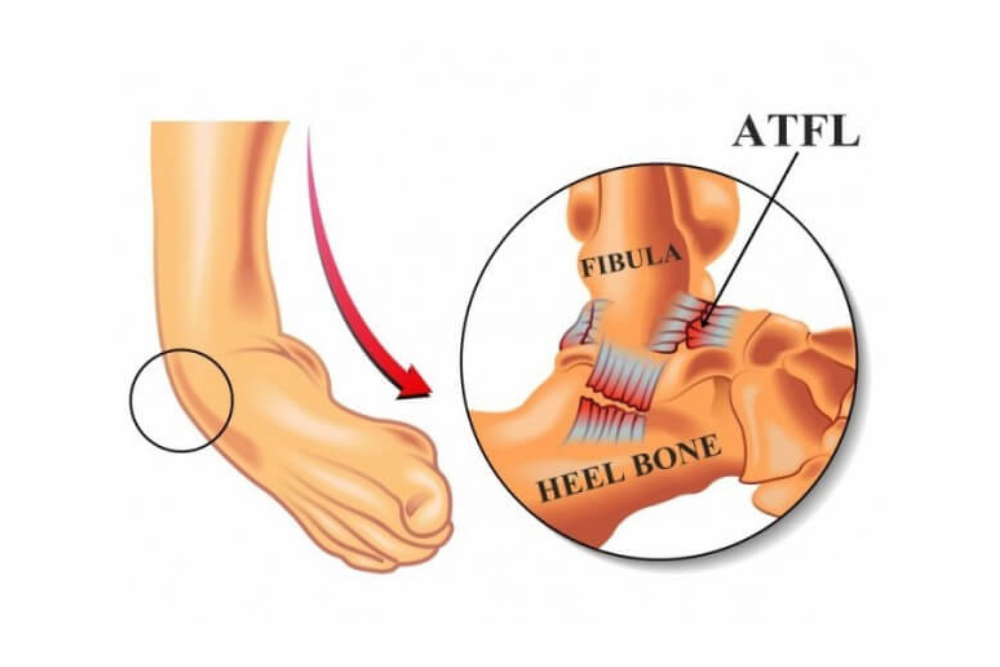
ATFL Injury is commonly called Ankle Sprain. The Anterior Talo-Fibular Ligament (ATFL) is stretched beyond its limit leading to tearing is called as Anterior Talo-Fibular Tear or injury. The tear is caused by sports or daily activities.
It is a common type of orthopaedic injury,it not only occurs to people involved in sports activities but even doing daily activities such as walking down a slope or walking over uneven slopes.
ATFL injury is caused by sudden twist, fall or blow to the ankle ligament also called inversion injury. Other causes include the use of inappropriate shoes while walking, forcefull movement on the uneven surfaces. It is most commonly seen in sports personals.
Pain in the ankle ligament is the most common sign followed by swelling, bruising, stiffness of the ankle which leads to difficulty in walking.
ATFL Injury diagnosis is done through patient history and physical examination. Supported by X-Ray to rule out fracture, further MRI scans can conclude the severity of the injury.
ATFL needs immediate management if left untreated it can lead to chronic ankle instability.
RICE therapy which includes Rest, Ice pack application, Compression and Elevation. Plaster (POP), Ankle brace provide immediate pain relief. NSAID’s to relieve pain and inflammation.
Common surgical therapies include ligament reconstruction by open technique and ankle arthroscopy. This approach is used only if non-surgical management fails with recurrent instability.
Either Medical or Surgical management, patients will need proprioception training for long-term stability. These exercises are taught to you by the doctor or physiotherapist.